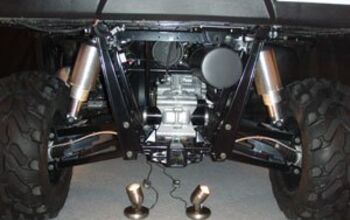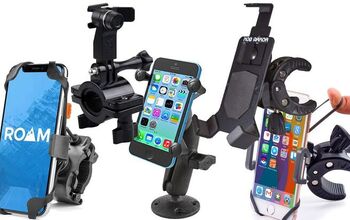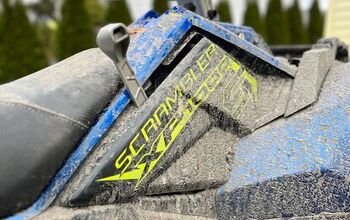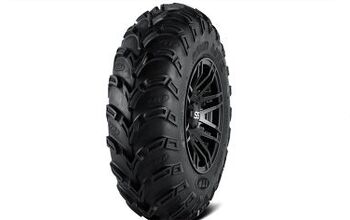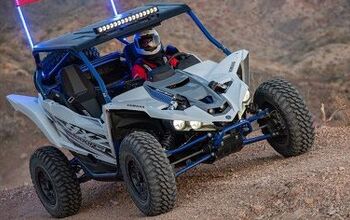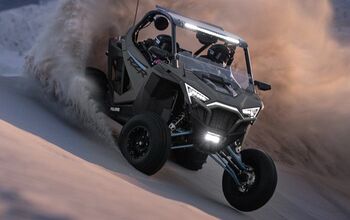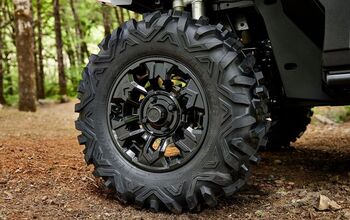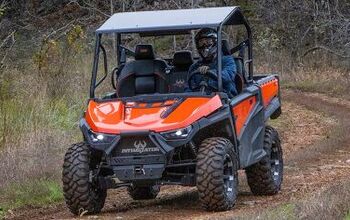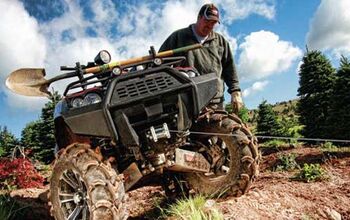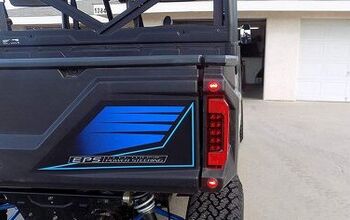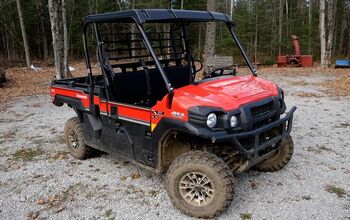2011 Pitster Pro FXR 125R Review
After the recent media blitz, you may have thought that Yamaha was the only manufacturer on the market offering a real 125cc sport ATV. Not everybody agrees with that sentiment.
Pitster Pro is an American-based company with manufacturing in China that carries a bit of street cred for building a line of well-regarded race-oriented pit bikes. Pitster Pro came up with the pit bike designs by looking at what was working in the pit bike racing world, and then applying it to its stock machines. The end results are reasonably competitive machines at a fraction of the price of purchasing and building up a Japanese pit bike.
Back in 2008 Pitster Pro decided to apply this same strategy to building an ATV and used a Honda TRX90s built up for national racing as a base line for the design. The result is the Pitster Pro FXR 90R, 125R, and 150R, which according to several magazine tests, are pretty impressive performers. Unfortunately, we have heard this before with the original Xtreme Typhoon 125, which found to be of poor design and extremely unreliable.
We were eager to take the Pitster Pro FXR 125R out for a spin to see if it lived up to expectations.
To see if it lived up to the hype, we decided to test Pitster Pro’s FXR 125R. This displacement has the largest number of available classes for youth racers and sets up a nice shootout between itself and the new Yamaha Raptor 125…stay tuned for that one.
Technically Speaking
A surprisingly peppy 124cc four-speed engine is at the heart of the FXR.
Underneath the plastic is a stout-looking chromoly frame.
Preload, compression and rebound adjustable GPX shocks are at both ends.
Lightweight alloy rims are wrapped with Carlisle holeshot-style tires.
Powering the Pitster Pro is a horizontal design 124cc air-cooled, two-valve, single overhead cam four-stroke engine. The engine features a 10.2 to 1 compression ratio and is nearly square with a bore of 54.5 and a stroke of 53mm. A close ratio four-speed transmission with a manual clutch harnesses the power, while air and fuel are fed to the engine via a 22mm carburetor. Most race-oriented youth ATVs use a carburetor-mounted clamp on filters. The FXR’s filter is mounted on a trick looking aluminum airbox.
A kick-starter turns the engine over, with no electric start option. The kick-start lever has a long downward stroke, which we are told forces Pitster Pro to equip it with a hinged heel guard that must be flipped up to start the engine. This is a pain and probably why our dealer removed the heel guards prior to us picking up the ATV. We believe this machine either needs an electric starter or the design of the kick starter has to be addressed to allow for a more conventional heel guard.
The Pitster Pro’s chassis is constructed of chromoly and looks pretty stout. The dual A-arm front end features camber and caster adjustments, something only found on a handful of stock 450cc models and most high-end aftermarket A-arms. The rear of the machine features a lightweight machined aluminum swing arm with a round housing-style axle carrier making chain adjustments a breeze. The chassis even features an anti-vibe steering stem.
Piggyback reservoir equipped GPX shocks reside at both ends. The shocks feature preload, compression, and rebound adjustments and control eight inches of wheel travel up front and nine inches in the rear, offering class leading suspension travel and adjustability.
Hydraulic disc brakes front and rear slow the FXR 125R. The front brakes feature dual piston calipers and the rear end features a wave style rotor providing better cooling and better brake pad clean out. The rear brake is operated with a uniquely designed reverse facing foot pedal. The front brakes are operated using the right side, handlebar-mounted hand lever.
Like Pitster Pro’s pit bikes, the FXR comes with many race-ready features. Lightweight aluminum rims are wrapped in Carlisle holeshot-style tires, 18×6-10 front and 18×6.5-8 rear. This wheel and tire setup has been very popular in motocross racing for years. A cross-country style aluminum front bumper, chassis skid plate, plus sprocket and rotor guards protect the chassis from trail obstacles. For additional safety and to make the machine race legal, the FXR even comes with nerf bars and a tether kill switch.
Body styling on the FXR is very similar to the Kawasaki KFX450R right down to the removable front and rear fenders. Its size is very comparable to the Raptor 125 and 250. Seat height is low at 29 inches, while claimed curb weight is an extremely light 244lbs. With an overall width of 45 inches and a wheelbase of 43 inches, the Pitster Pro’s measurements look rock solid and stable.
The Test
For its first rides, we took our Pitster Pro FXR 125R to Earlywine Indoor Motocross and a Private outdoor test track located in northern Kentucky. Our test crew consisted of three youth racers of various skill levels who could easily show the machine’s strengths and expose any weaknesses.
Flip the carburetor-mounted choke and kick the engine a few times and it fires to life with a roar. The FXR comes with a spark arrested free flowing competition style exhaust, so you may have to be mindful of neighbors if you want to do some backyard riding in the city. The valves were a bit chattier than we are accustomed to, so we checked the valve clearances and everything looked good. After break in, we ran it mercilessly for a few hours with no valve train issues.
We were very impressed with the power produced by the stock engine.
For a stock 125, the engine’s power is surprisingly good. Low-end torque was impressively strong, which made take-offs, climbing big hills and gear selection much easier. It seemed the larger the rider, the more they were impressed with the little 125’s low-end muscle. The FXR’s midrange and top end power continued to impress us. At Earlywine, our youth racers were screaming the engine along the wall section trying to clear a section of short, spaced out doubles. The power was even good enough that Chance Beverly became the first rider on a mini to jump the finish line double which is right out of a corner. While it may not beat a fully modded national TRX90 built to 125cc with $2,500 worth of motor work, the FXR 125R’s engine feels pretty impressive!
Clutch pull isn’t the smoothest; however, its action is light enough. The close range four-speed transmission kept us up-shifting quickly; however, unless we were trying to run at a race pace, the engine’s strong torque made downshifts less important., Shifting was pretty smooth and predictable in either direction, but not having first gear at the bottom of the shifting pattern took some getting used to.
A smaller rear sprocket would have been nice for the long straights.
On wide-open straights, we often found ourselves screaming the engine in fourth gear looking for fifth. The stock engine could easily pull a rear sprocket with two less teeth which would give the machine a bit more top speed and spread the ratios a bit.
Handling on the 125 is very stable. The machine can be whipped into turns with little consideration for approach speed. On flat ground the front wheels do a decent job of going where they’re pointed; however, we did notice some front-end push on highly banked turns unless our riders rode aggressively, steering with the rear wheels. The FXR slides predictably through turns, thanks to its good tire selection, stable width, and strong engine.
Handling proved generally stable, but the FXR feels best when being ridden aggressively.
The A-arms were set up with full caster, which trades steering precision for high-speed stability. Taking caster out of the front end should only improve steering precision.
The FXR’s GPX shocks are more than a match for the stock engine. It feels like the machine has a ton of travel at both ends (which it does). We backed off the compression damping on the front shocks a few clicks. We then added another inch of preload to the rear shock, increased its compression damping four clicks, and backed the rebound all the way out. Dialed in, both ends did a good job of resisting bottoming on our riders’ more daring leaps. Jordan Trimble was pounding the machine mercilessly through deep whoops in perfect control as the shocks gobbled up each impact. In spite of its big impact prowess, the shocks still allowed the machine to float over small bumps on the trail. Unlike many mini ATVs, you could easily race with the FXR’s stock suspension.
In spite of bleeding the front brakes several times, we couldn’t get a real positive feeling out of them. They slowed the machine well, but felt soft. The rear brake offered good power and decent feel and could lock the rear end up easily for brake slides.
The FXR has the ergos of a larger machine so it should fit a wide range of body types comfortably.
The relationship between the seat and pegs is shorter than a full-size sport machine. The relationship between the pegs and bars, however, felt comparable to a full-size quad. This allowed the machine to fit a wide variety of rider sizes, but everyone agreed that the pegs felt a bit too far forward.
Some small details such as the grips, airbox and hand guards were nice. Others such as the cheap feeling levers, strange heel guard design, and less than perfect ergonomics left us feeling that the machine could use a bit of refinement. After two hard hours of testing, nothing has broken, although we have had to tighten a number of bolts that should have received Lock Tight at the factory.
Conclusion
Initial quality seems decent, and this is by far the best-made machine we have seen come out of a Chinese factory. If you are considering purchasing one, we would recommend making sure you are working with a reputable dealership that is willing to take the time to go through the machine and set it up. The Pitster Pro FXR 125R offers a ton of performance for the money at $3,399 and is the only raceable 125cc four stoke machine on the market that we are aware of. Only time will tell if it is reliable, but so far, so good!
For more information on Pitster Pro and its family of ATVs and pit bikes, visit PitsterPro.com.
Related Reading
More by ATV.com Staff



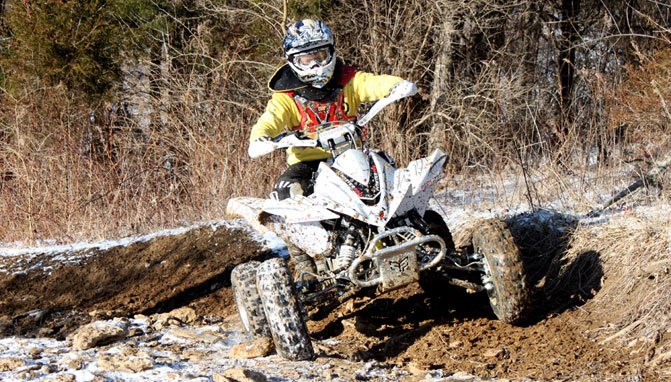










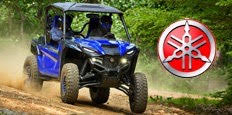


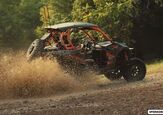
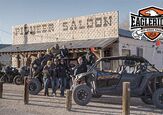
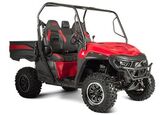
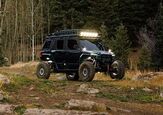
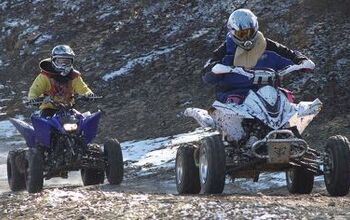
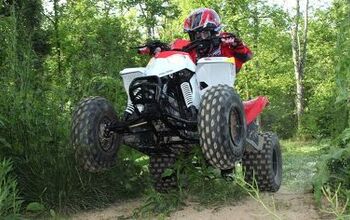
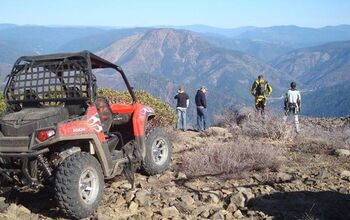
![Derek Guetter Crashes During Backflip [video]](https://cdn-fastly.atv.com/media/2022/10/24/8744073/derek-guetter-crashes-during-backflip-video.jpg?size=350x220)
